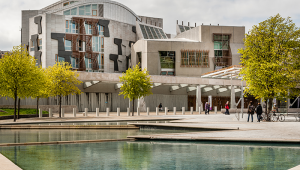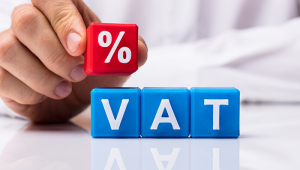The move, which would have seen the Scotland’s finances partially determined from next year by forecast and final estimated VAT receipts north of the border, was regarded as the next major step towards fiscal devolution.
But first minister Nicola Sturgeon said a methodology, which relied on estimates of tax receipts in the absence of outturn data, had “enormous risk” attached to it.
“That in normal times would give rise to concerns anyway; in a time where there is such instability, largely because of Brexit, then proceeding on that basis…could result in a significant hit to the Scottish budget,” she told a meeting of committee conveners in the Scottish Parliament.
Announcing the delay earlier in the day, finance secretary Derek Mackay told the parliament’s finance and constitution committee that over two years’ work by officials in Edinburgh and London had so far failed to produce a reliable model under which VAT revenues could be assigned.
As a result of that volatility, as well as uncertainty over the UK’s exit from the EU, Mackay said he was “increasingly minded” to postpone the move until the forthcoming review of the fiscal framework.
“We have not found a way that addresses that issue of risk, which is compounded by Brexit uncertainty,” he said.
Mackay stressed that he still wished to see the devolution of VAT powers to Scotland. “But it’s not a devolved power as it stands, it’s an assignation which carries disproportionate risk because of the uncertainty and lack of data,” he said.
“The level of risk is such that we’re not a position to sign that off.”
The announcement follows a previous committee session in which the Fraser of Allander Institute warned that there was a “big issue” over the accuracy of estimates, with a potential divergence of “a couple of hundred million either side” because of statistical uncertainty.
Public finance minister Kate Forbes told PF last month that there could be a case for delaying the move until both Scottish and UK governments had complete confidence in the model under which assignation would take place.
The proposed change would have seen the Scottish Government assigned the first 10p of standard rate of VAT, and the first 2.5p of the reduced rate, while seeing an equivalent reduction in its block grant from Westminster.
Although the Scottish Government would have had no power to vary the rate of VAT, the Scottish budget would have been influenced by the growth of assigned VAT revenues compared to that of revenues in the rest of the UK.


















